CauKazEthnoexp. IV. Azerbaijan. Part II. Gobustan, GanjaMap
July “24 Hours” is “24/24” in Azerbaijani. 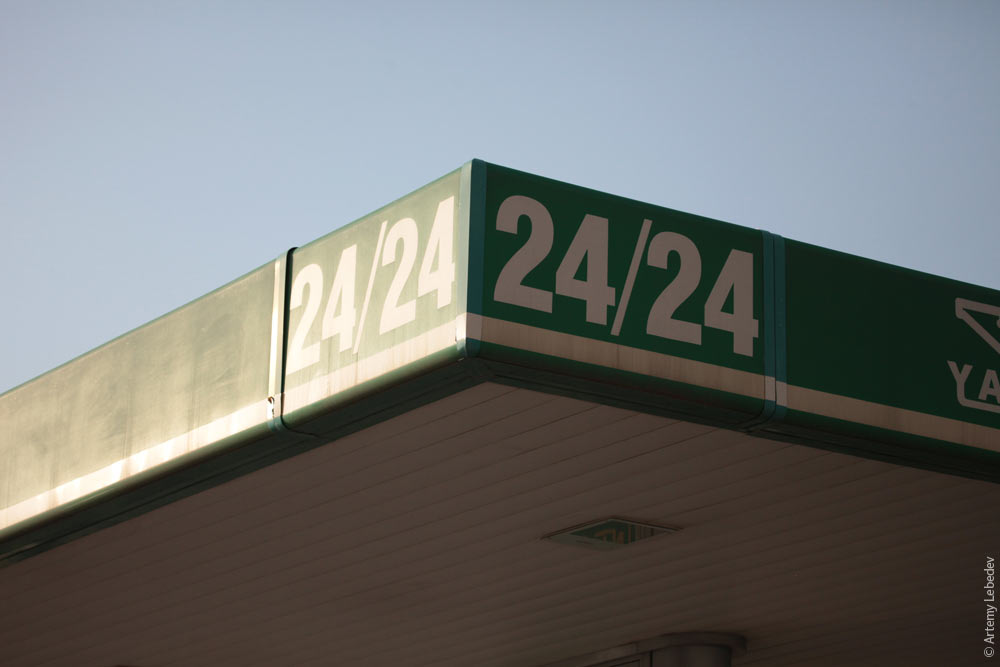 Hello, little cow! The whole country is plastered with portraits of the late President and his wise sayings. 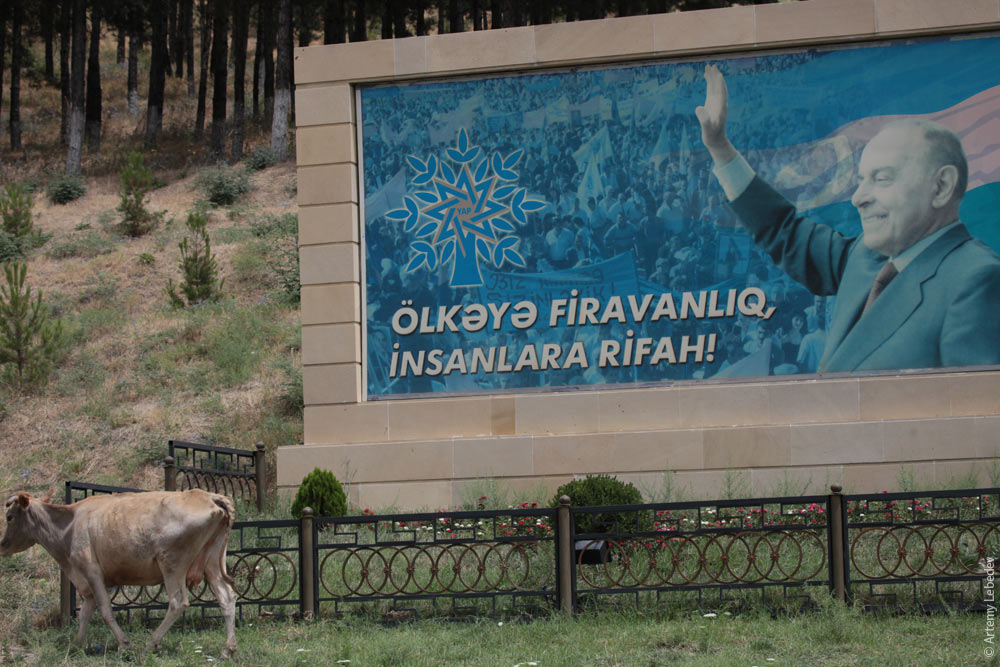 The place where traffic signs are mined. 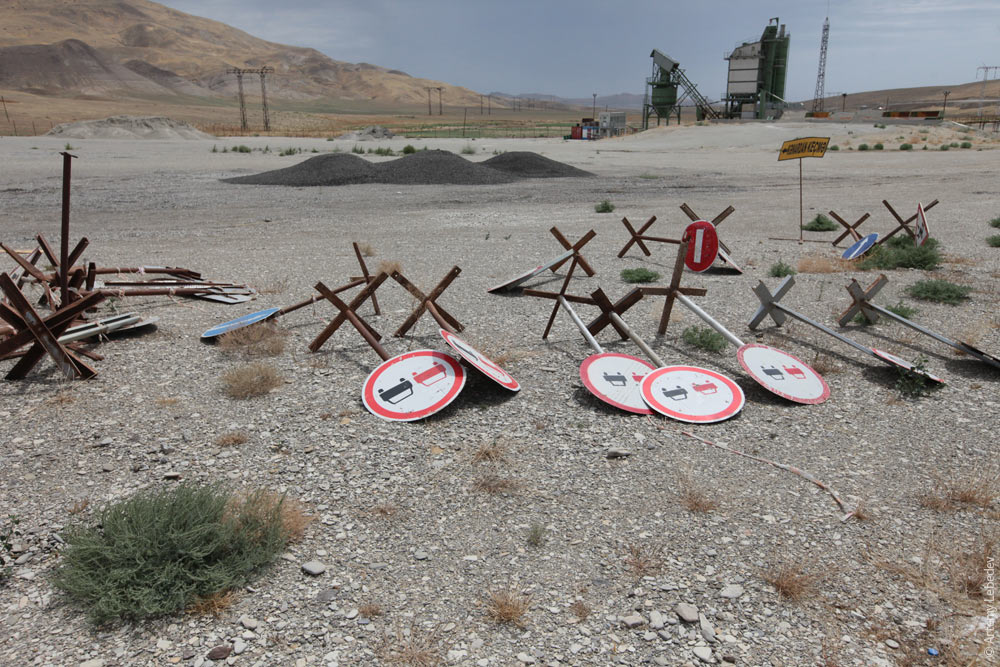 While exploring the back yards of Baku, I punctured my rear tire in one of the yards of the Old City. A local resident came to my rescue, with pleasure and without any ulterior motives. The following day, I stopped by a shop selling used tires. It had the tire I needed, but the owner refused to come down on the price (as a result, I later bought a new one in Kutaisi). 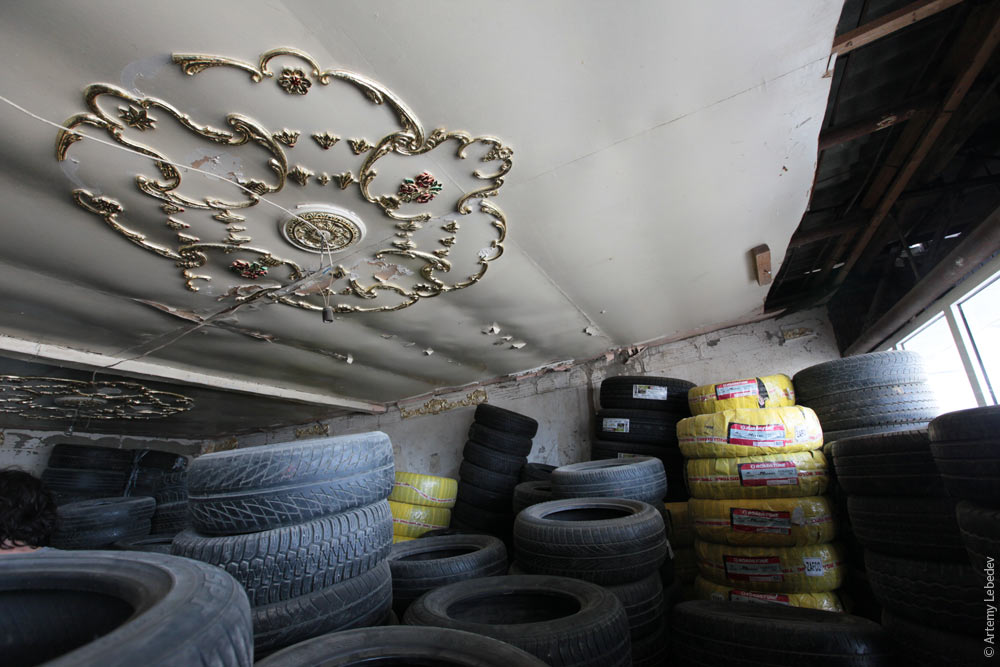 You’ll frequently encounter yellow boxes along the road. They denote car washes. These boxes are actually the covers of portable water cannons, which are used here to wash cars. Real signs must be too expensive. 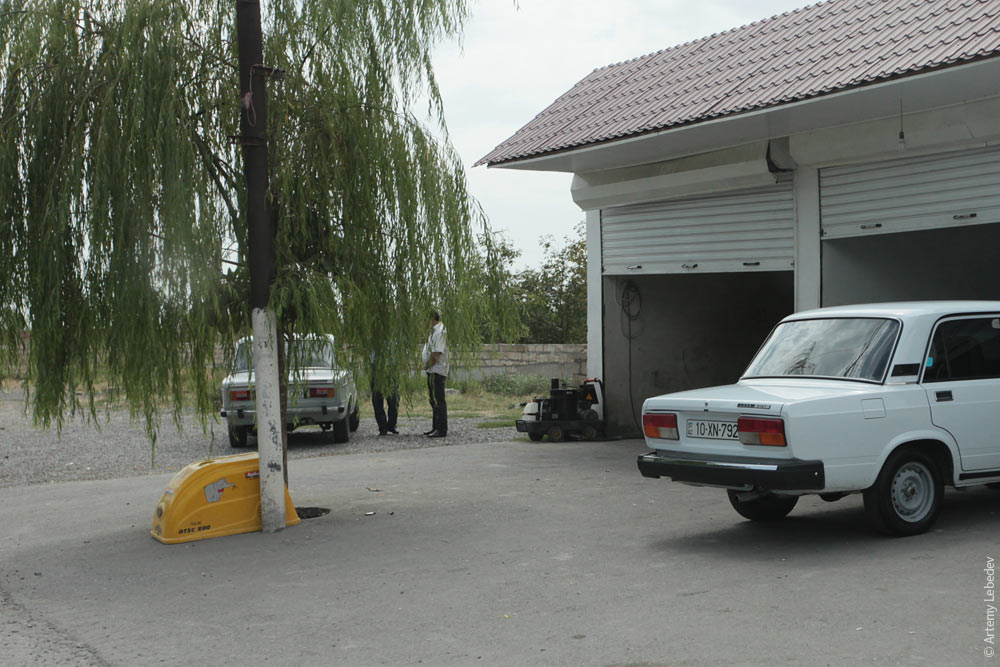 GobustanMapThere’s a wonderful place with mud volcanoes an hour and a half away from Baku by car. 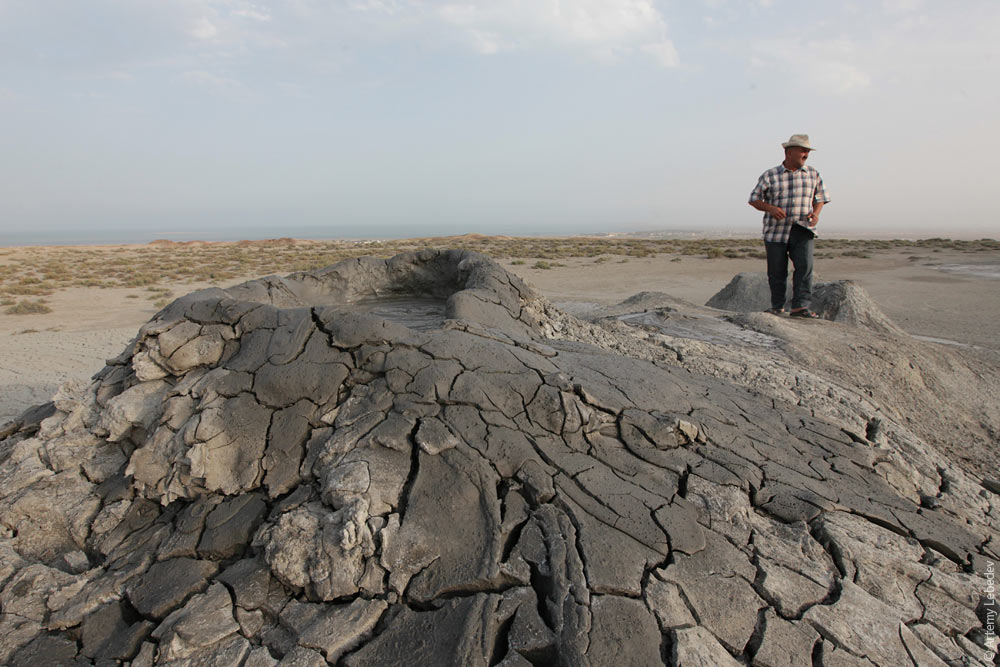 The volcanoes occasionally fart mysterious odorless gases through the cold liquid sludge. 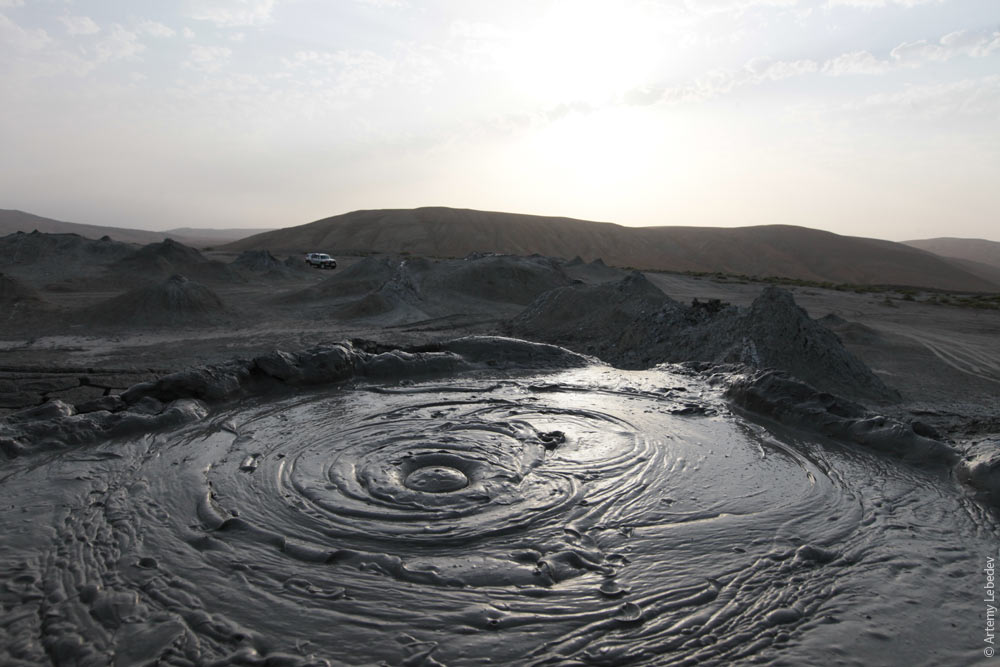 Of course, this place comes with stories about foreigners who package up the therapeutic sludge into little jars and sell it for exorbitant amounts to rich ladies in pursuit of eternal youth. GanjaMapAn amazingly intact old Russian city of incredible beauty. The atmosphere and mood here is similar to Gyumri in Armenia. 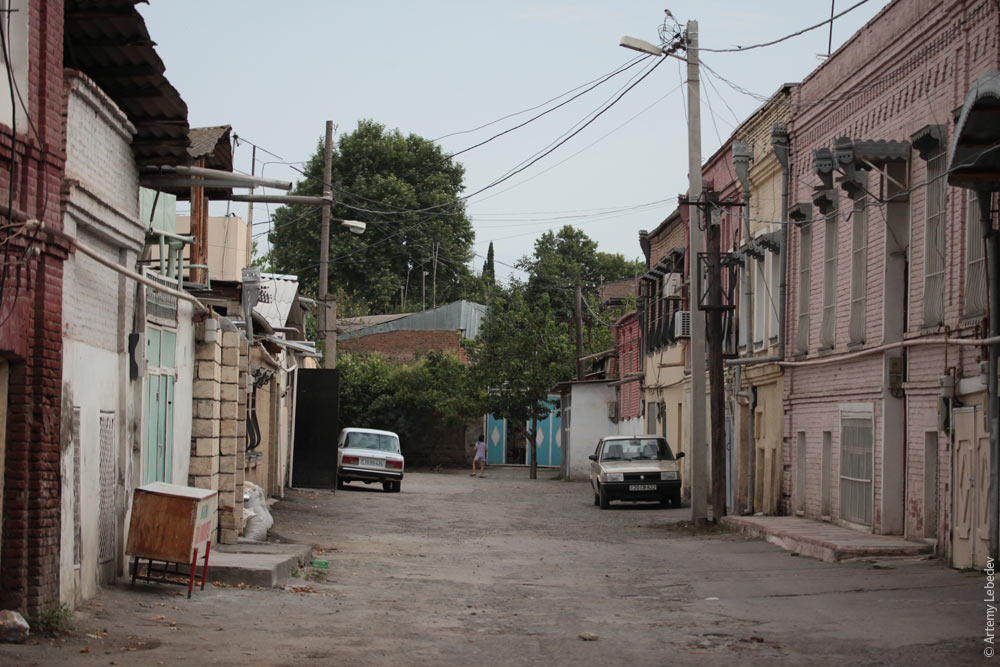 The tradition of elaborately decorating the funnels of rainwater drainpipes is very much alive here. 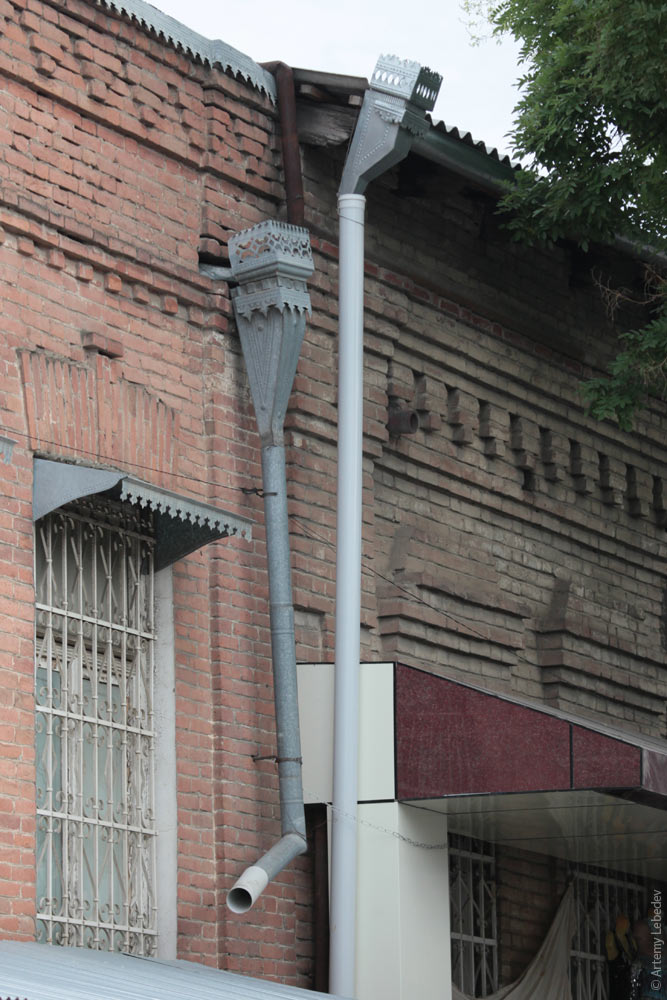 You can find signs from a whole range of eras on one street—from remnants of Cyrillic... 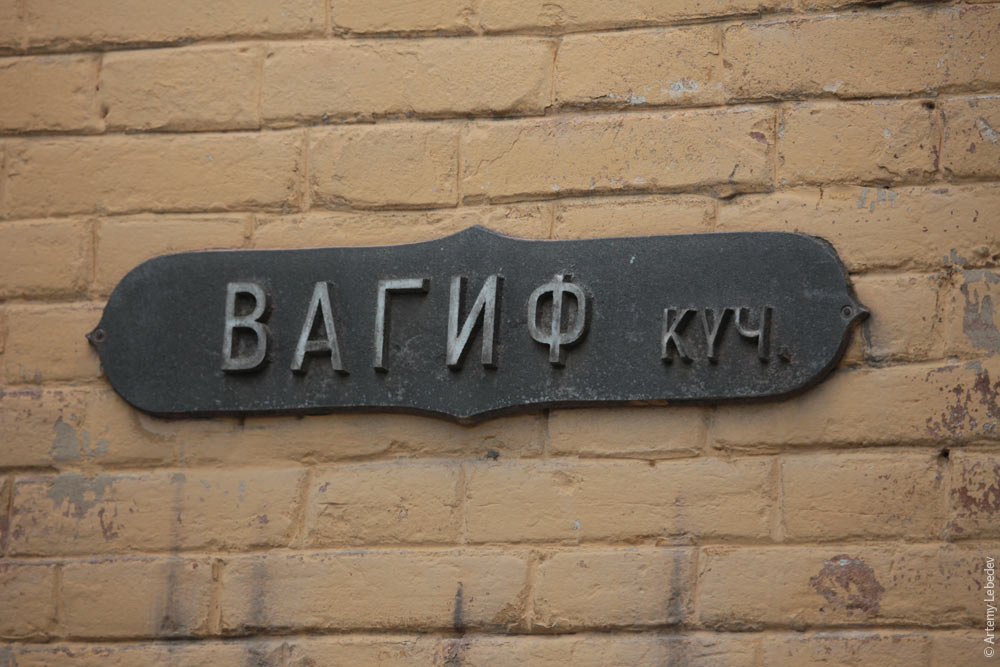 ... to modern Turkish tin plates. 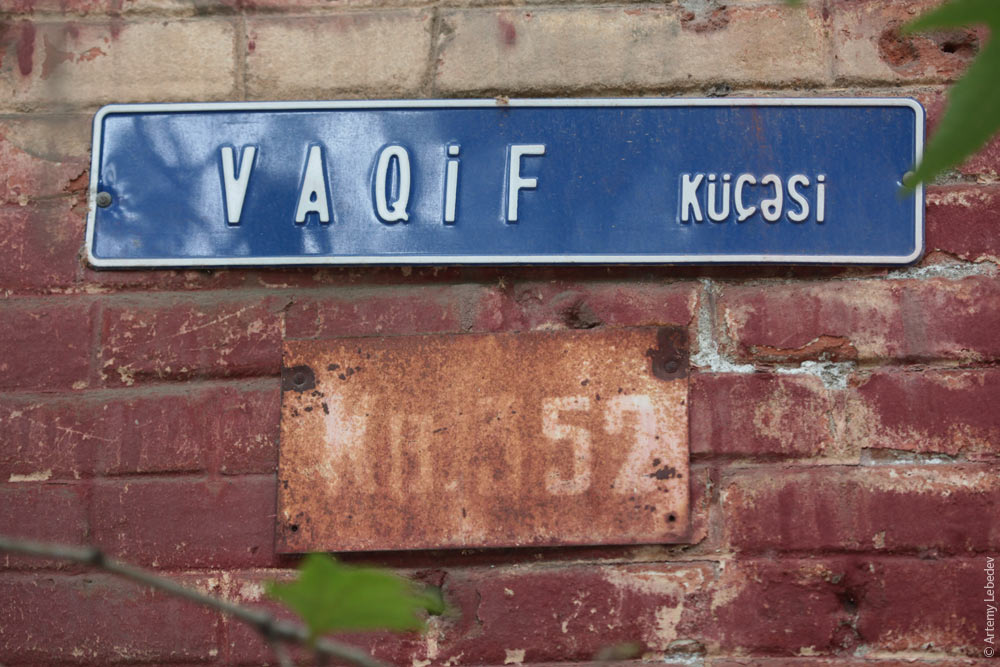 Including intermediate stages, as well as very rare district markers (Russian cities used to be divided up into numbered districts, but very few traces of this remain, the only ones I’ve come across are in Perm). 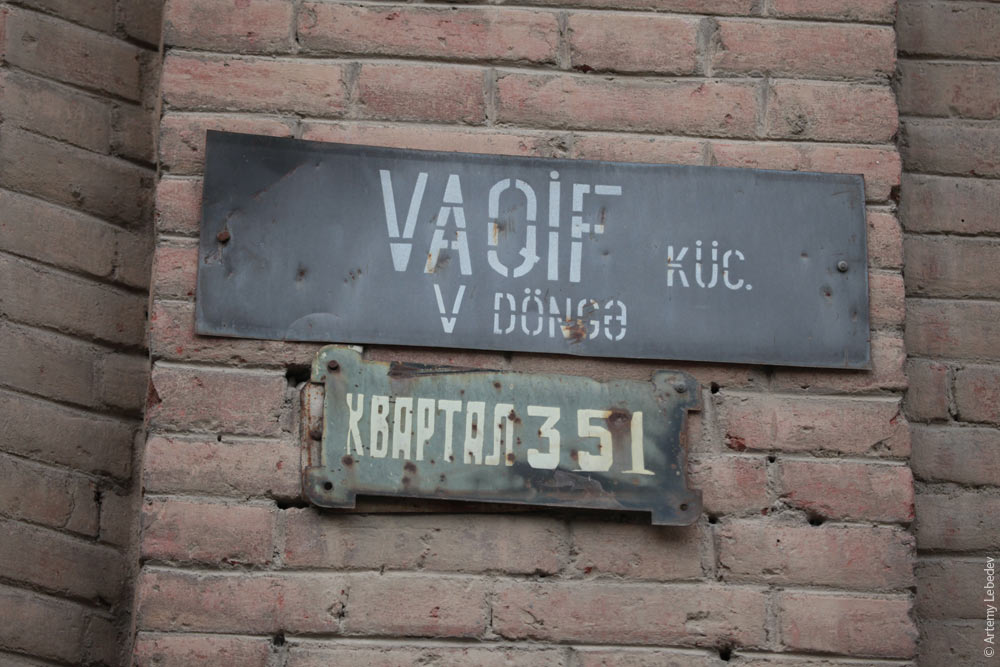 A rare specimen (see Tbilisi and Girona). 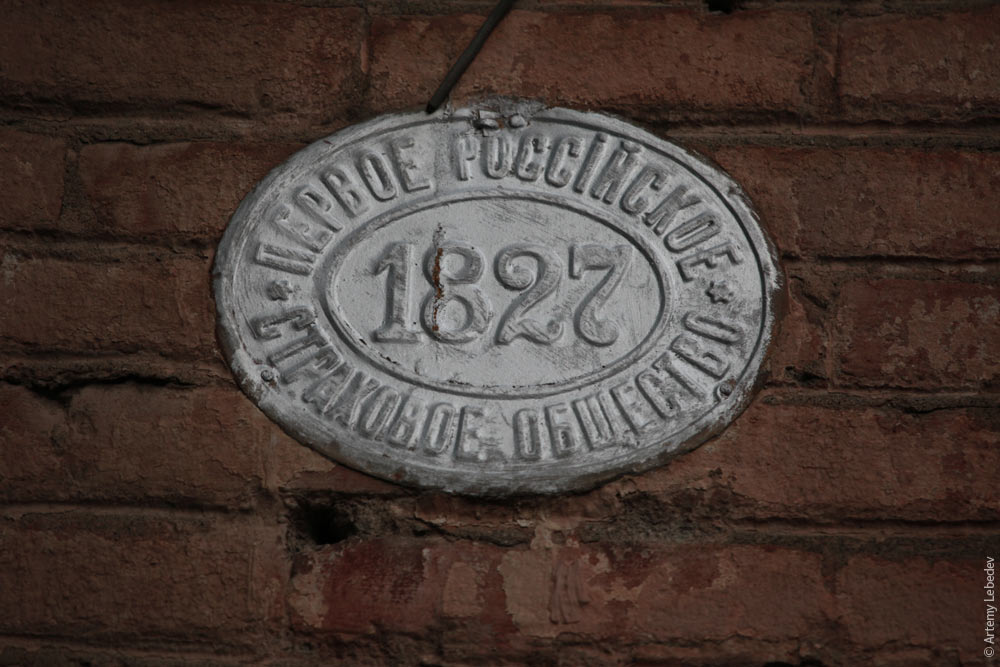 First Russian Insurance Company A contemporary trash can. 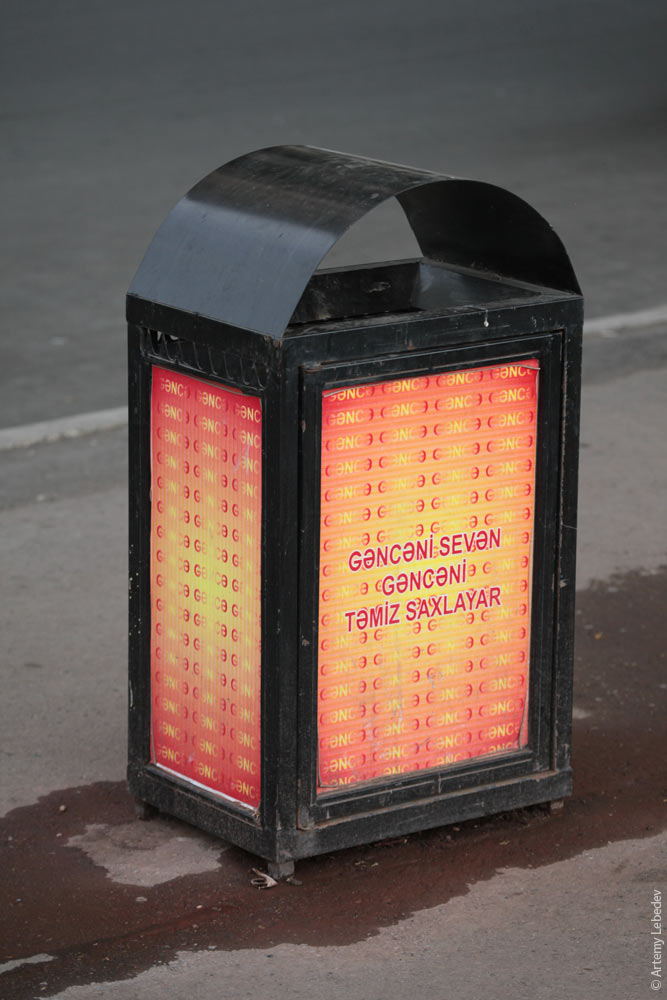 A classic model. 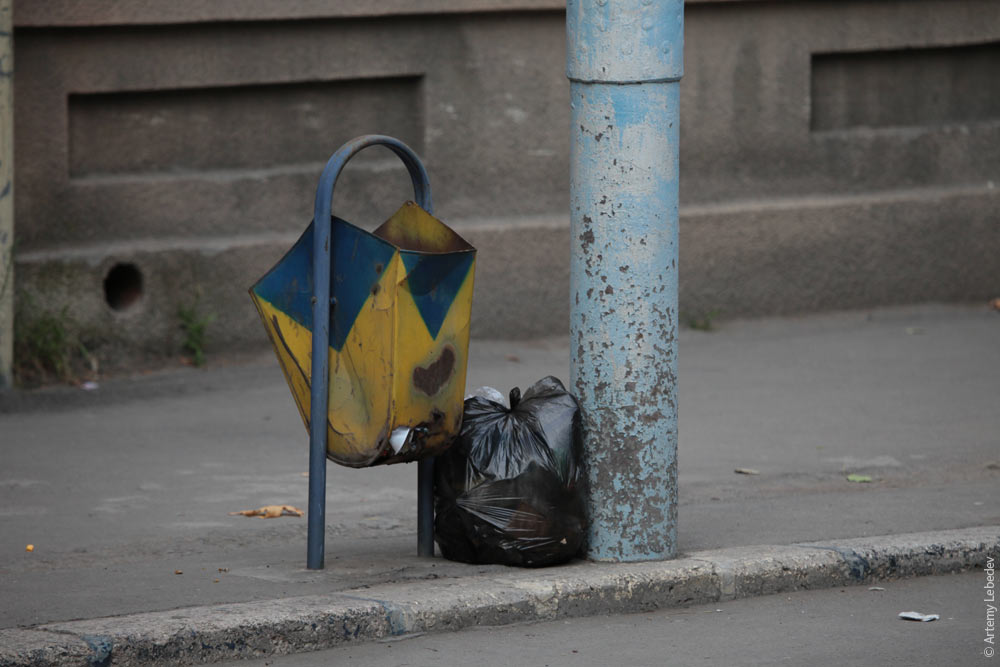 I haven’t seen such a large number of Zhiguli and other brands of the Soviet car fleet since the days of the USSR. 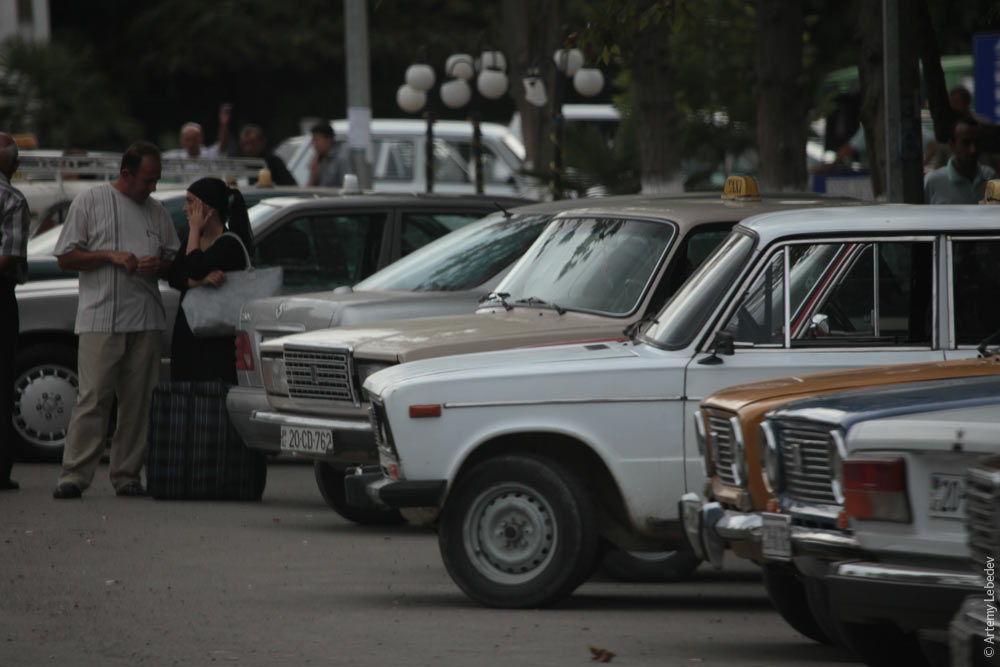 Azerbaijanis are the last hope and bastion of the Volga Automobile Plant. 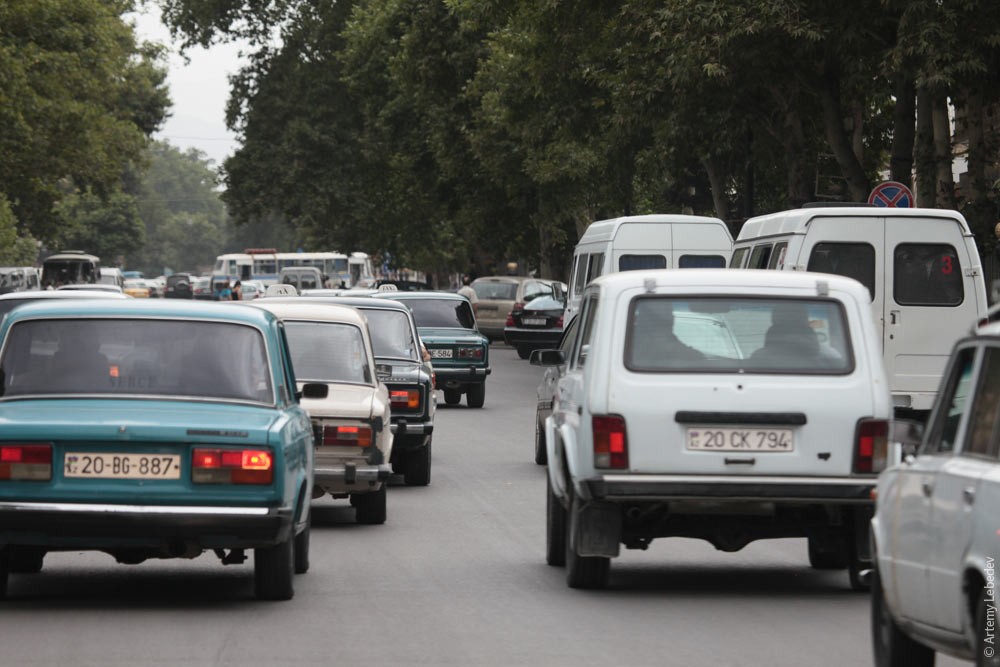 The only foreign brand they make an exception for is Mercedes. 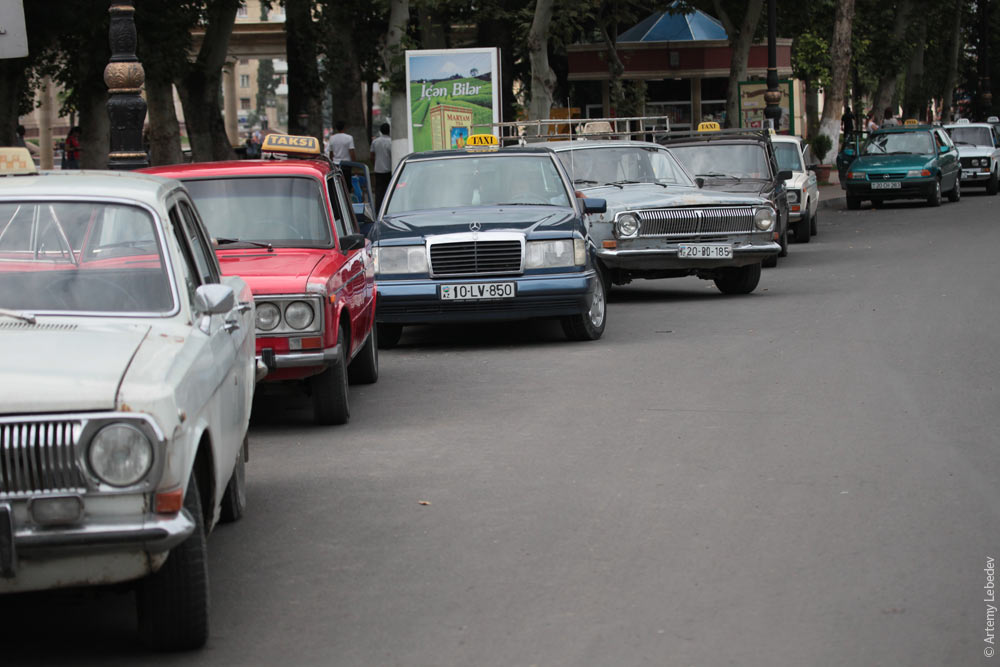 As soon as an Azerbaijani becomes wealthy, he immediately buys a Mercedes to replace his Zhiguli. 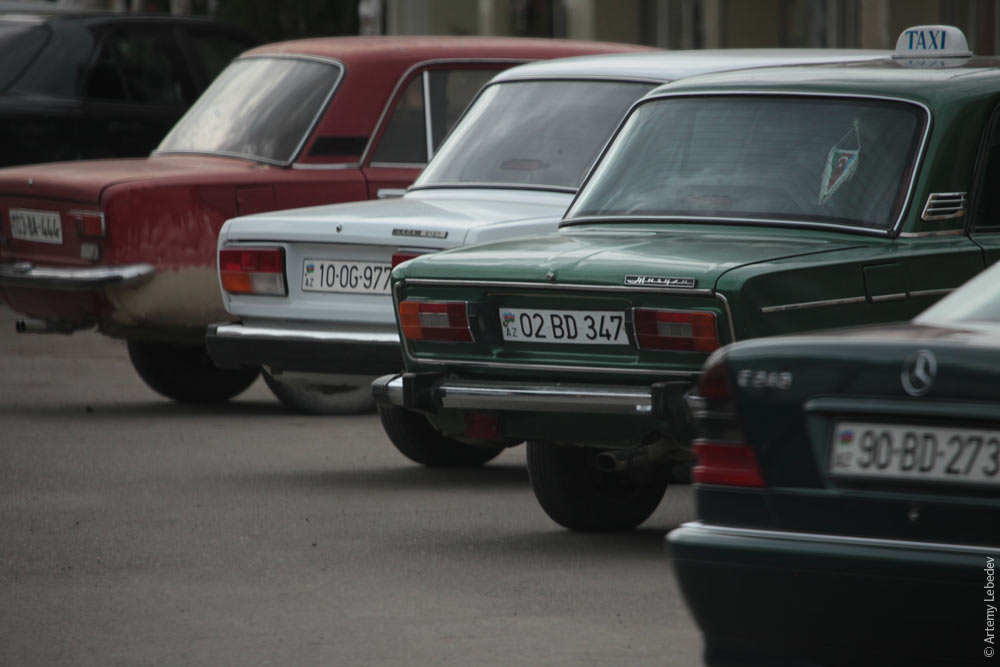 Of course, we’re not talking about a new Mercedes here—a 15-year-old model will do just fine. 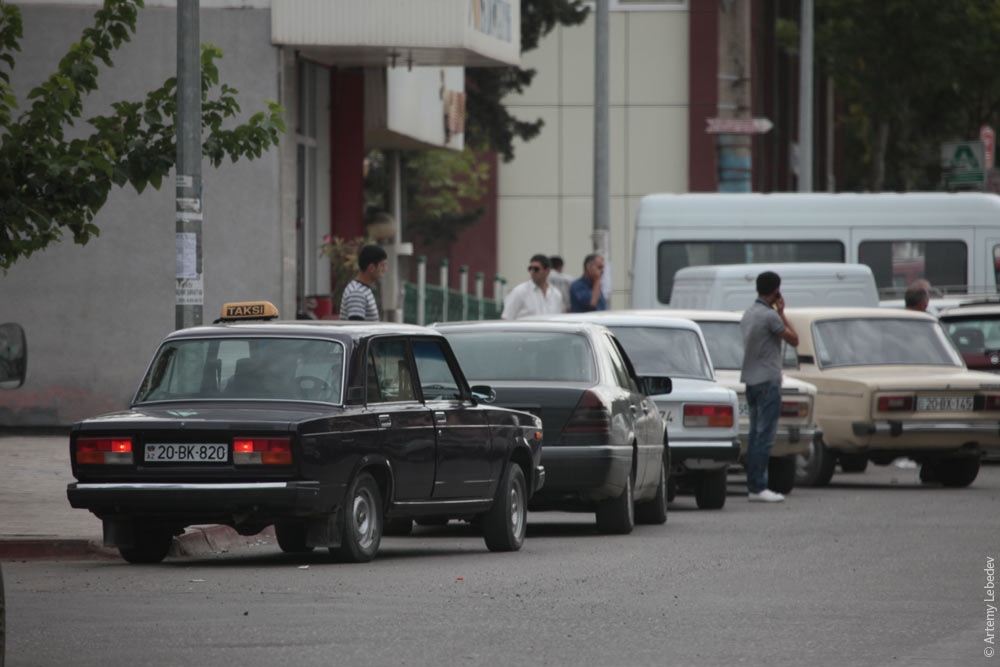 You’ll always spot a Merc in any crowd of Zhiguli. 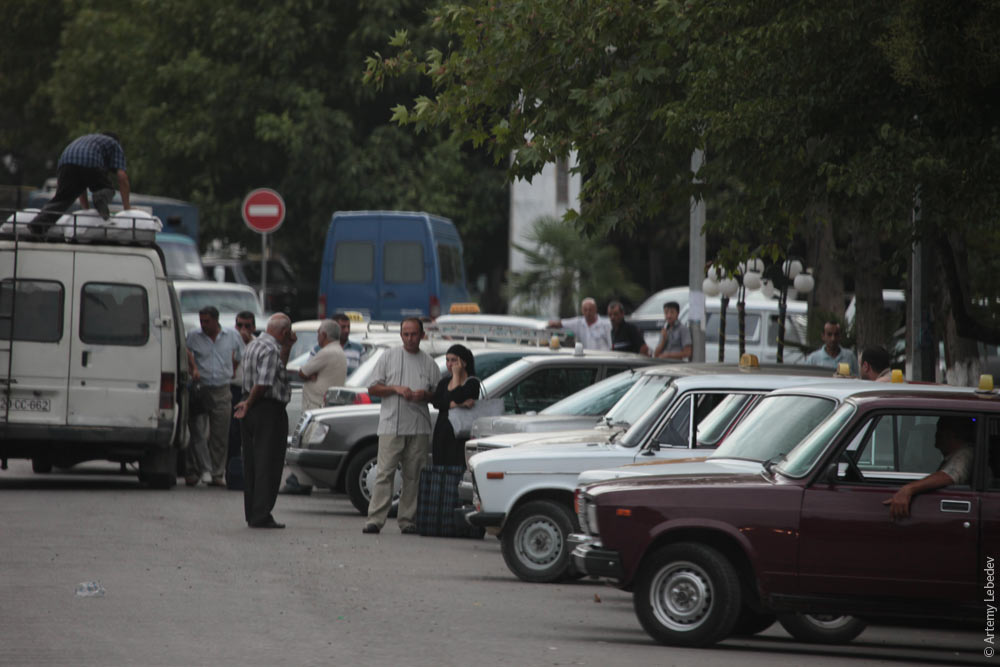 Our visa was about to expire; we had to leave the country by midnight. The border with Georgia is like a country fair, with clucking chickens and complete chaos. As you leave, they also ask you for a bribe—it’s unthinkable for an Azerbaijani official to not receive a bribe at least for something. 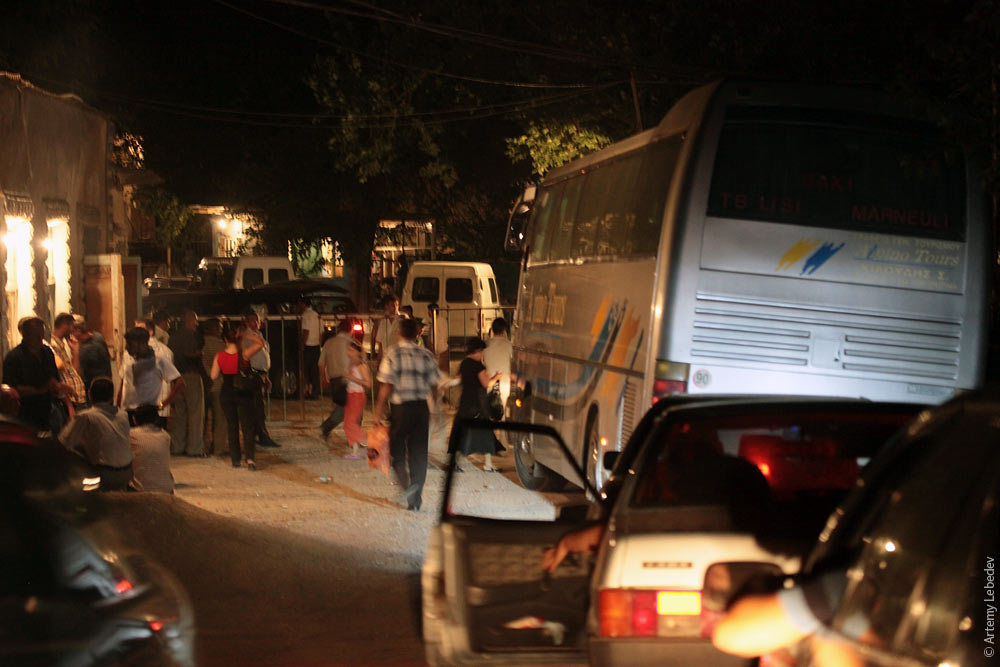 Azerbaijan feels like it consists of two parts—the capital, populated by homo erectus, and the outskirts, which run around on all fours. The capital has excellent roads, perfect facades, high-quality historical restorations, comme il faut restaurants. In all the other parts, you have shepherds and greedy cops, dust, Zhiguli and oil. |